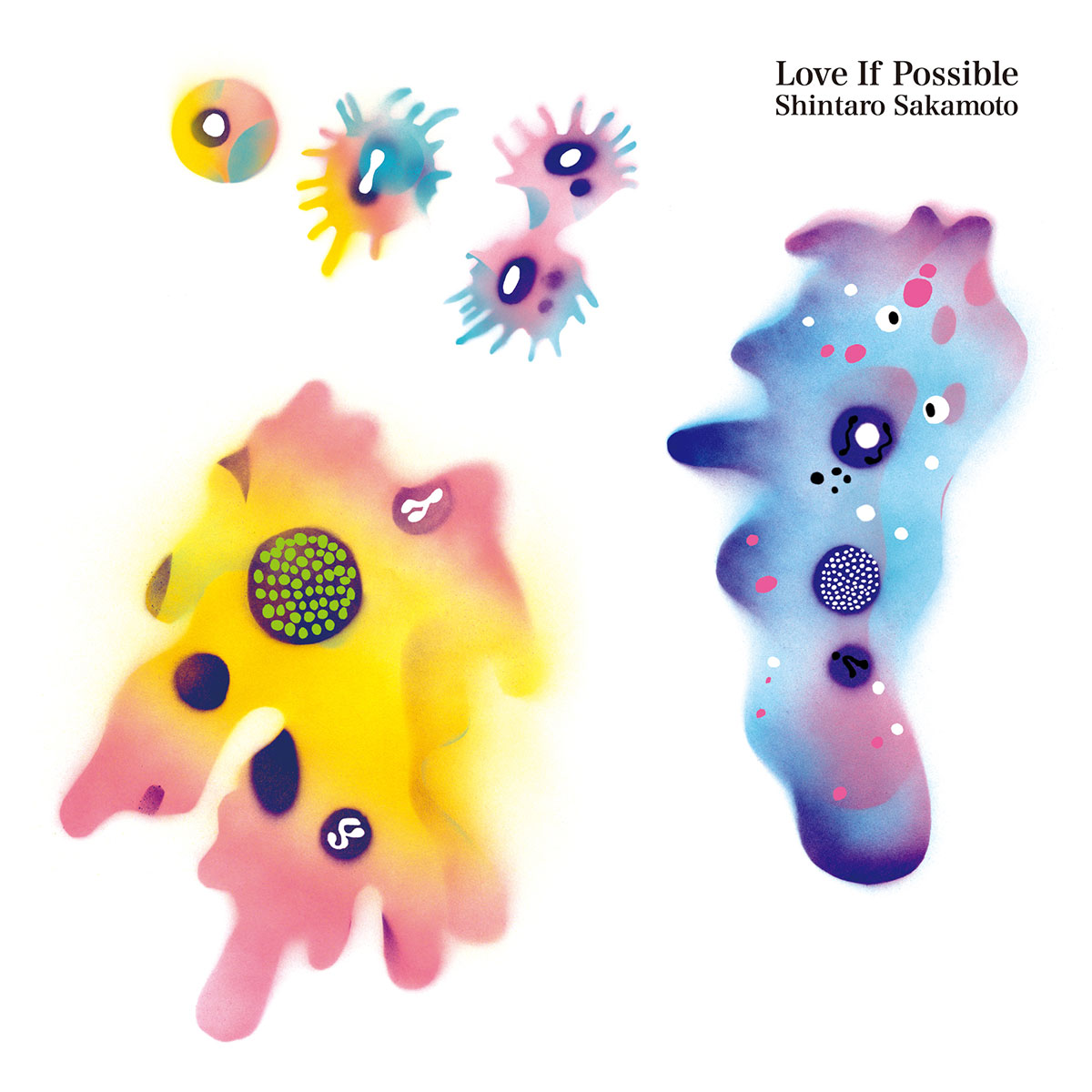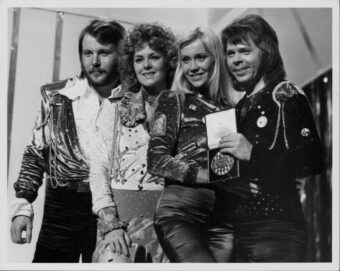In the late 1950s and early ‘60s–the space age that spawned The Jetsons and brought hi-fi stereos into countless suburban living rooms–Americans were infatuated with the thought of experiencing far-off and unknowable cultures from the safety of their homes. Think of João and Astrud Gilberto, Les Baxter, Miles Davis’s Sketches of Spain, Juan García Esquivel, Herb Alpert’s Tijuana Brass: It was a great time for musicians who satisfied this urge for the exotic, regardless of whether they were offering a genuine article or the ersatz version.
By deliberately amplifying the foreign strangeness that composers built into easy-listening exotica and that dilettantish listeners imposed on bossa nova and Latin jazz, the Japanese musician Shintaro Sakamoto seems to ask, What if this alien music were made by actual aliens? Following two decades as frontman of the beloved psych-rock outfit Yura Yura Teikoku, Sakamoto has spent the last five years making tight and rhythmic pop that just barely passes the Turing test, immaculately arranged and recorded on a small orchestra of guitars, keyboards, woodwinds, drums, and hand percussion. His sound also evokes Steely Dan, Stereolab, and Eureka-era Jim O’Rourke–auteurs of slyly sophisticated, sometimes difficult music that just happens to sound great in the background over cocktails.
Sakamoto fully established his uncanny aesthetic universe on his 2011 solo debut How to Live With a Phantom, which has become something of a cult classic for American record collectors and Nipponophiles. (For English-speaking listeners, the fact that Sakamoto sings in Japanese makes the line between his music’s intentional distance and our own otherizing occasionally difficult to define.) On 2014’s Let’s Dance Raw, he refined the formula, mostly via layers of steel guitar that sounded like the shag-carpeted tiki bar approximation of Hawaiian slack-key playing.
Love If Possible continues to subtly expand his sound, with more forceful rhythms and the addition of marimba and Mellotron to the mix. In its ghostly way, Sakamoto’s music has always suggested the idea of dancing, but “Like an Animal” and “Disco Is” are among the first songs in his catalog that might induce actual bodily movement on the floor. “Tournament of Macho Men” grafts his sensibility onto the sort of meandering, pastoral ballad that was once the exclusive domain of curly-headed Englishe guyse who spelle everythinge like thise, complete with Mellotron flute.
Sometimes, the songs seem to stretch out forever in all directions with no peaks or valleys, like an infinite marble tabletop, bringing to mind James Brown’s edict for the way his band should sound: “Hard. Flat. Flat.” When drummer Yuta Suganuma hits his toms or any cymbals other than the hi-hat, it qualifies as a major event in the life of these songs. He gets through the entire five-and-a-half-minute title track, which opens the album, with just kick, snare, and shaker.
In November, rather than releasing a traditional single to announce the upcoming American release of Love If Possible, Sakamoto shared a cover of “Disco Is” performed by an electronic musician named Syunsuke Ono, who is otherwise best known for his vocoder interpretations of Sly & The Family Stone. Ono’s version of “Disco Is” is sparse and sweetly mechanical, as if Rosie the Robot Maid had turned herself into a one-woman funk band for the entertainment of the Jetson family. It doesn’t sound exactly like Sakamoto’s own recordings, but you’d be forgiven for thinking you were hearing a snippet of his new album. Doing away with his human human voice entirely in favor of an android’s syrupy drawl would seem like a logical next step for Sakamoto’s music, and it’s tempting to wonder what Love If Possible would sound like if he’d further indulged his more experimental tendencies.
The album’s most immediate song is “Purging the Demons,” on which Sakamoto sings call-and-response with three backup vocalists and a pitch-shifted version of his own voice that sounds not entirely unlike Ono’s vocoder. The lyrics reference the Japanese folk myth of Momotaro, a boy who takes a dog, monkey, and pheasant with him on a journey from his home town to battle the monsters who live on a far-off island. (In Sakamoto’s version, Momotaro travels not in the giant peach of the original, but a “used car.”) As it ends, “Purging the Demons” fills with background chatter and hollers that might as well have been ripped from some forgotten funk 45, putting Sakamoto’s robot crooning smack in the middle of an honest-to-god party. At that moment, Love If Possible’s alienness momentarily sprints past its pleasant wallpaper quality, and you can imagine a baffled soiree guest finally putting down his drink and wondering aloud, What in the world is this music?





